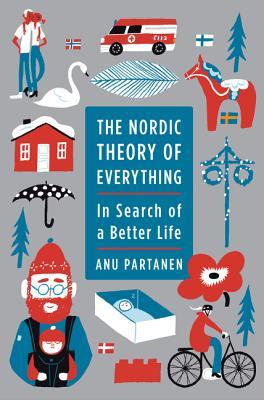The Nordic theory of surviving the Kavanaugh confirmation hearings
Last week was, for me, the most disheartening, dismal week in American politics since the day Donald Trump won the election in 2016. For many of my friends, it was the single worst week in recent memory. We can quibble over the rankings, but one thing is clear: it was a terrible week for me to read The Nordic Theory of Everything by Anu Partanen.

I resented reading Nordic over the last week; with its fuzzy description of politics and policy in the Nordic countries, Partanen's memoir/political encomium felt frivolous and beside the point. The president was mocking sexual assault survivors, for Christ's sake! Maybe in a Hillary Clinton presidency, I could see myself reading Nordic and pining for a better way of life. But with the United States teetering ever-closer to a cross between the Cold War and the Civil War, Nordic felt like exactly the wrong book at exactly the wrong time.
I think most attendees of the Reading Through It Book Club last night at Third Place Books Seward Park happily didn't share in my resentment of Nordic. Some seemed to find great comfort in Partanen's book.
And I can totally understand why! It's a well-written book, and Partanen, a Finnish reporter who married an American, is in a unique position to write it. Her description of the various types of health care programs that exist around the world — from single-payer to federalized care — is the clearest and simplest explanation I've encountered in my life.
But I wish we had the luxury to sit around and wonder if our education system or our social safety net should be more like Sweden's. Children are being detained in camps at our border. Apocalyptic environmental predictions are being used to deregulate pollution. Worrying about parental leave seems pretty small in comparison.
Our conversation at the book club last night veered toward the cynical. We had a big discussion over whether one person's actions — particularly in an overwhelmingly liberal city like Seattle — can make a difference in the country. Every time we talked about the possibility of choosing a better system, an ugly truth would rear its head.
Ultimately, though, it's important to understand these other ways of doing things, these more humane ways to live. It's been said tens of thousands of times since the 2016 elections: Democrats can't win on a party-of-no platform. We have to supply an alternate narrative, a new understanding of what it means to be an American. And that means we can't go back to the incrementalism of the past. We have to embrace new ways of governing ourselves, and that means looking to good examples and learning what we can. Maybe Partanen's book is exactly the book we should all be reading right now.